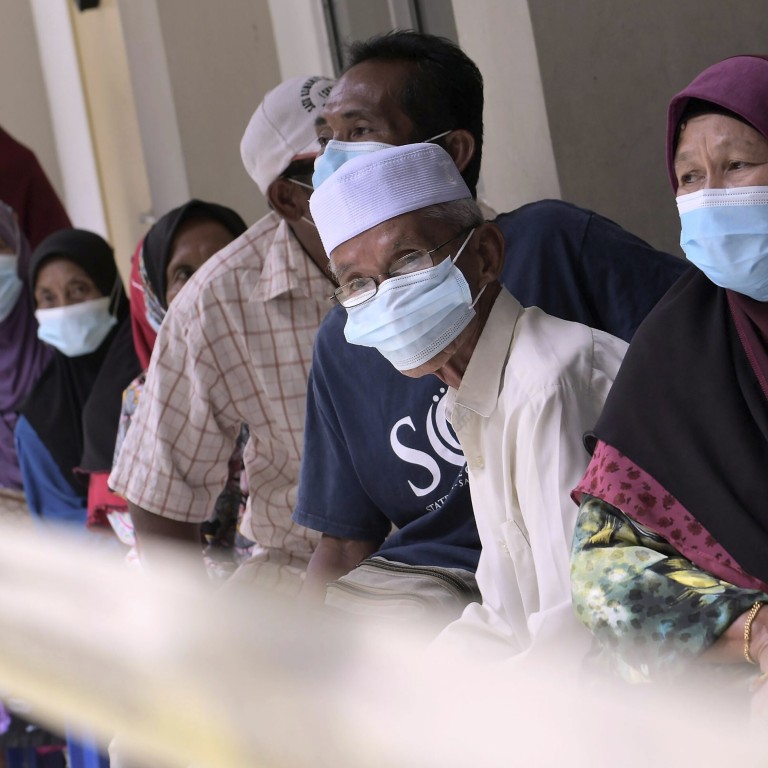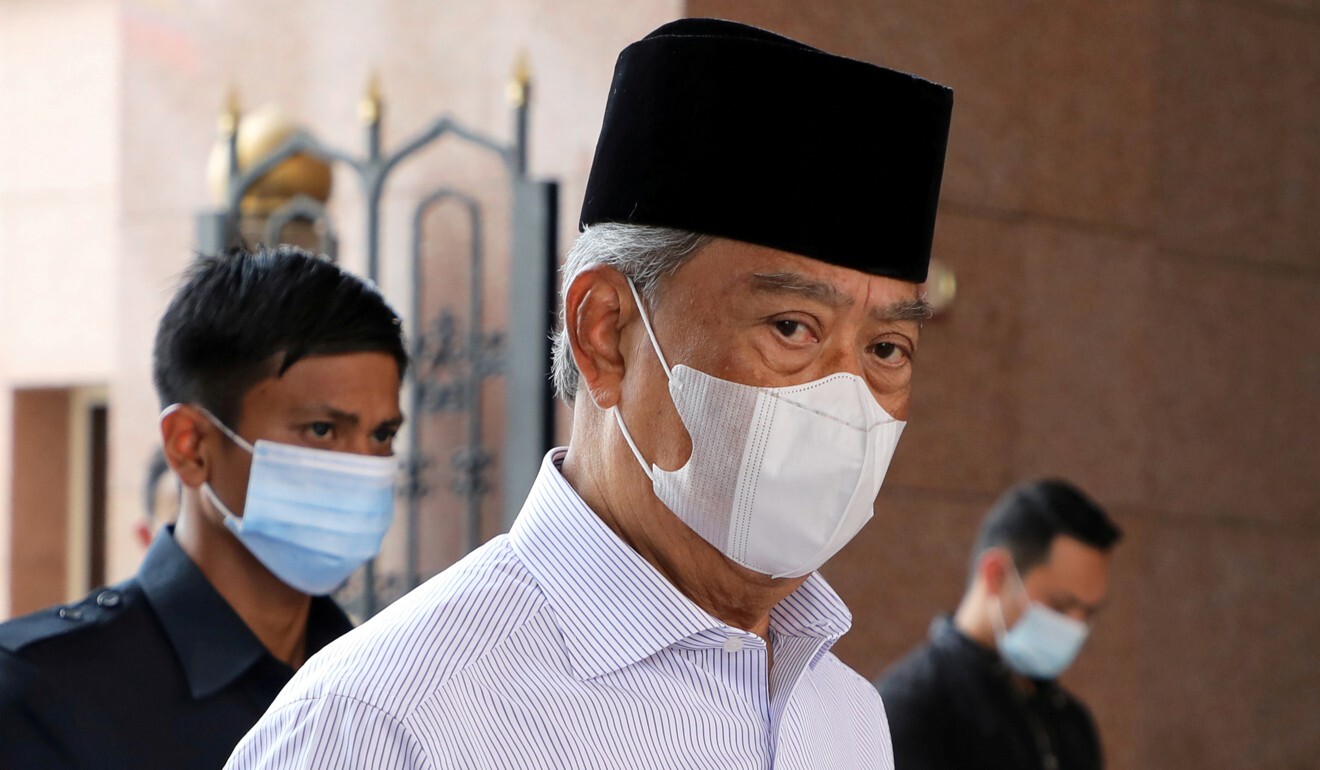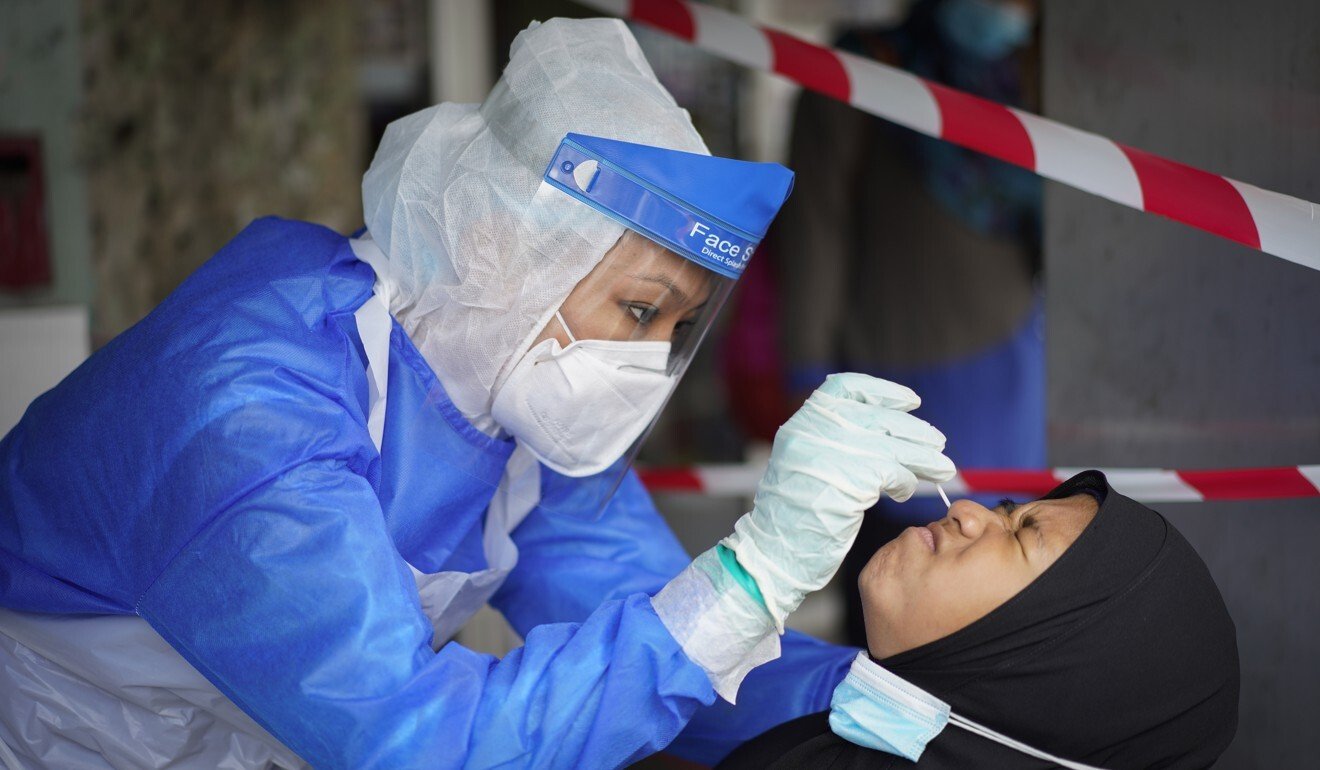
Coronavirus Malaysia: PM blames Sabah election as among causes of huge infection surge
- After weeks of single or double digit rises, Malaysia on Tuesday recorded 691 new cases – the third record daily increase in the space of four days
- Despite the surge, a national lockdown was not being considered, Muhyiddin Yassin said from quarantine after one of his ministers tested positive
Malaysia’s daily virus case tally has skyrocketed since the election, as voters and politicians alike went back and forth between Peninsular Malaysia and the Bornean state of Sabah for hustings and polls. After weeks of single or double digit rises, the country on Tuesday registered a record 691 new cases, bringing the national total up to 10,427 with 141 deaths. Tuesday’s record increase was the third one in the space of just four days.
Despite the surge, the Muhyiddin said his government was not yet considering the implementation of a lockdown like the one imposed between March and May.
Malaysia’s PM quarantines after minister tests positive for Covid-19
“Such measures, if undertaken again, could have a huge effect and might cause societal and economic collapse,” he said in a special address that briefly overlapped with the Health Ministry’s daily briefing, asking citizens to voluntarily stay at home when possible instead.
“We need to break the transmission of the virus and the best way is to stay at home, especially in areas where a Targeted Control Movement Order is enforced. We must flatten the curve. We did it before and I firmly believe we can do it again.”
The prime minister said the September 26 polls in Sabah were unavoidable under the constitution given the dissolution of the state assembly – done by Sabah governor Juhar Mahiruddin at the request of sitting chief minister Shafie Apdal, who was defeated in the elections by Muhyiddin’s proxies.
Shafie’s administration had been threatened by allies of the prime minister who triggered mass defections, so he sought dissolution to allow voters to decide if they wanted a change of government.

The Gabungan Rakyat Sabah, a coalition backed by Muhyiddin’s Perikatan Nasional alliance in the federal government, won the polls.
In his speech, Muhyiddin sought to impress in his characteristic avuncular manner by telling viewers that Abah (a Malay-language term of endearment meaning ‘father’) now had to “use the rotan” – in reference to a cane commonly used for corporal punishment in Southeast Asian households.
On social media, the quip immediately drew derision, with commentators saying they rejected the prime minister’s repeated attempts to portray himself as a father figure for all citizens.
“People are angry, anxious, afraid. So much uncertainty over the future,” wrote Twitter user Faisal Hamssin. “This isn’t the time for your Abah joke. It’s getting old.”

There have been increased calls for more stringent coronavirus control measures following the surge in cases, despite fears that a second national lockdown could deal irreparable damage to the economy.
In March, soon after a political coup that saw Muhyiddin come to power, the country entered a months-long movement control order that saw non-essential businesses closed, interstate travel banned and strict sanctions for breaching social distancing or mask rules.
However, a perceived double standard between politicians and ordinary people raised the hackles of Malaysians who pointed out that their leaders had been spotted having mass gatherings, not wearing masks properly and even breaching quarantine.
Muhyiddin addressed these accusations in his speech, saying there were “no double standards” and that action would be taken against lawmakers who breached the rules.
As more Malaysians learn Mandarin, Chinese schools call for recognition
More than half of the cases in the recent spike have been attributed to a prison cluster in the state of Kedah, while over 200 were found in “red zones” in Sabah. The government also put in place an interstate travel ban to and from Sabah beginning October 12.
On Monday, Malaysia recorded 432 new cases and closed 122 schools in Sabah.
Public health experts have warned that multiple clusters may emerge and spread in Kuala Lumpur and densely-populated Selangor as a consequence of voters returning from Sabah.
“There must be quick implementation of a Targeted Enhanced Movement Control Order with strict compliance, irrespective of individuals involved,” said Helmy Haja Mydin, a respiratory doctor and head of think tank Social and Economic Research Initiative.
“We lost control so quickly due to complacency. When it comes to infectious diseases, you only need a small number of positive cases for things to escalate quickly. Now we must take proactive measures: test, quarantine, treat. Cancel all indoor events, mass events, minimise outdoor activities. People are watching, they are getting angry,” he said, adding that social tensions needed to be addressed.
“Individuals are unlikely to comply if they think that there are double standards. Prepare for a surge of mental health complaints, we also need to prepare for surge of hospital beds facilities being used, which means normal activities and hospital visits will be paused.”

